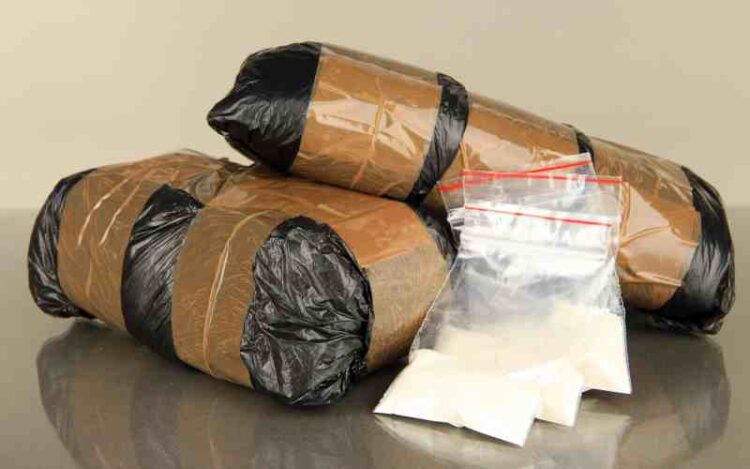A tale of misfortune unfolded for a duo of Colombian narcotics traffickers whose vessel encountered mechanical issues. The US authorities apprehended the two individuals and confiscated 223 pounds of cocaine, as they were making their way to Long Beach. Their ill-fated journey was reported by FOX11 Los Angeles.
A Vessel Laden With Illicit Substances
The simple open and motorized panga-style fishing vessel, often seen in the developing countries, experienced a mechanical failure on the 4th of July near the Colombian coastline. This is not an isolated incident, as numerous similar vessels loaded with cocaine have faced similar fate in the past. Efforts from the U.S to make the Colombian government take more serious actions against the cocaine trade have proven largely ineffective. Coca cultivation in Colombia surged to record levels in 2021, according to the United Nations Office on Drugs and Crime (UNODC). As Reuters reports, cultivation of coca plant, the base ingredient for cocaine, rose by 43% to encompass 204,000 hectares (roughly 500,000 acres).
Unsurprisingly, the American dream of the two individuals aboard the troubled ship, laced with cocaine, did not come true on this 4th of July. On their course to Long Beach, they sought help from a passerby. According to a press release from the U.S. Coast Guard Sector Los Angeles-Long Beach, this good Samaritan towed their malfunctioning vessel. However, when suspicions arose about the true nature of the cargo, they notified the Coast Guard about possible narcotics on board the boat.
Drug Bust at Sea
These suspicions proved valid. The Coast Guard discovered 223 pounds of cocaine concealed within a false compartment of the vessel. The two passengers were taken into custody and the cocaine and boat were seized by the U.S. Customs and Border Protection officers.
“This operation is a testament to the excellent interagency collaboration between the U.S. Coast Guard and CBP,” stated Lt. Commander Keith Robinson, the chief of law enforcement at Sector Los Angeles-Long Beach.
While Colombia’s leftist President, Gustavo Petro, stands against illicit drug trafficking, he has raised interesting questions about the environmental consequences of the war on drugs. These are concerns that resonate with many U.S. cannabis cultivators who have experienced their crops being destroyed. In his first speech at the General Assembly in 2022, Petro discussed how the world’s dependency on money, oil, and carbon, coupled with a “hypocritical” war on drugs, is damaging the Colombian rainforest, as reported by the UN.
Petro suggests focusing on the leadership of criminal groups and increasing social funding in coca cultivation areas as alternatives to the war on drugs. He argues that the world’s dependence on oil and the resulting climate effects are more detrimental than the impact of drugs.
As evidence of the failures of the war on drugs, he points to a report that shows how this campaign fuelled Colombia’s civil war. This report was the result of a study conducted by a commission formed as part of the 2016 peace deal with the Revolutionary Armed Forces of Colombia (Farc). This agreement marked the end of five decades of civil war. The report reveals that U.S. funding of Colombia’s armed forces during the war only intensified the conflict, as stated by The Guardian.
On American soil, cocaine remains classified as a Schedule II drug, while cannabis is still a Schedule I drug. Despite the controversies surrounding these classifications, change has been slow to come.
IN OTHER NEWS: Costa Rica Stops 2.5-Ton Marijuana Trafficking Attempt









